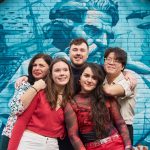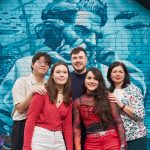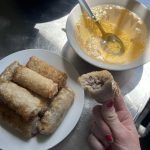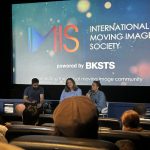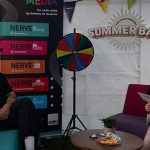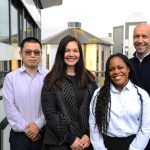 Produced by Guest blogger
Produced by Guest blogger
My name is Sam Castro and I am currently a second year student at Bournemouth University studying Operating Department Practice.
My story begins on the May bank holiday weekend in 2014. I had just finished another 50-hour week at the office. I was feeling pretty tired but I had put that down to having a family and a busy work life. Whilst refereeing at a local football tournament I had bitten my gum during one of the games, and by the next morning my gum had swollen so much that it had covered my teeth on the one side of my mouth. After several visits to the GP and two courses of antibiotics the infection had cleared but my gum hadn’t healed. My GP sent me for a blood test and within three hours I’d received a call saying that something abnormal had come up with my bloods and I needed to get to hospital straight away. I collected my belongings and hurried out of the door saying goodbye to my staff, unknowingly, for the last time.
The consultant mentioned Leukaemia but couldn’t confirm without a bone marrow biopsy, not a very pleasant experience I can tell you. Within an hour I was having a double blood transfusion and a transfusion of platelets. Within a fortnight I’d received my diagnosis of Aplastic Anaemia. Well, that didn’t sound too bad, “can’t you just give me some iron supplements and I’ll promise to eat more spinach?”
Like most people I had never even heard of Aplastic Anaemia before, it didn’t sound particularly serious anyway. How wrong I was. I spent a year on blood and platelet transfusions three times a week. I had a central line fitted and spent two weeks as an inpatient receiving chemotherapy in a failed attempt at making me better. Eventually a donor was found so that I could have a bone marrow transplant – the only true cure for this disease. I spent six weeks in isolation having my transplant and a further three years off work while my immune system was recovering. During that time I could not socialise or be around people at all in enclosed spaces due to the risk of infection. During the time that I was ill I also lost three close family members to cancer which has been devastating for my whole family.
I used my recovery time well. I had already decided that I did not want to return to my current role as an office manager but I wanted a career in healthcare, a vocation that I could demonstrate true empathy to patients going through uncertain times. I spent some time looking into different career options and came across the Operating Department Practice course at Bournemouth University. The only problem was I didn’t have any A-levels. So I completed an Access to HE course in Health from home and applied to BU to study as part of their last intake for the Dip HE programme. I was so pleased to have my application accepted. Coming to Bournemouth University has allowed me to move on in my life and start a fantastic new career.
 Studying to become an ODP with BU has been, and still is, an exciting venture. After some initial grounding in physiology and anatomy, the course progressed with some fun group work in the form of mini presentations where you could work together and consolidate your knowledge. This also provided a great opportunity to make new friends, perhaps quicker than you would otherwise! For someone who was completely new to the hospital setting, (other than being a patient!) I particularly valued the time in the clinical skills lab to practice and improve upon key skills such as scrubbing, gowning and gloving before starting my clinical placement.
Studying to become an ODP with BU has been, and still is, an exciting venture. After some initial grounding in physiology and anatomy, the course progressed with some fun group work in the form of mini presentations where you could work together and consolidate your knowledge. This also provided a great opportunity to make new friends, perhaps quicker than you would otherwise! For someone who was completely new to the hospital setting, (other than being a patient!) I particularly valued the time in the clinical skills lab to practice and improve upon key skills such as scrubbing, gowning and gloving before starting my clinical placement.
I am really enjoying all aspects of my clinical placement at The Bournemouth Nuffield Hospital, where I am given the encouragement and support to improve my skills across a diverse range of specialities. I have benefited from excellent mentoring where time is taken to explain things that aren’t understood and opportunities are made to help improve areas where I need further support. The course at BU is set out in such a way that plenty of time is given to prepare for written work that needs to be completed alongside clinical competencies. BU also boasts two libraries and an extensive support service for advice on a range of personal, academic and financial issues if required. I have always found the most recent publications I have needed in the Lansdowne Campus library and the staff are very helpful. So, although some of the academic work might be challenging at times, there’s always plenty of time to prepare and there is support and guidance if needed, which can also be arranged on a one-to-one basis.
The year 2020 is a big year for me. Not only will I be qualifying as an ODP (hopefully!), I will also be 5 years post-transplant, a major milestone. So, in light of this and in memory of those I have lost to cancer, in August 2020 I will be taking part in a 12-day expedition to climb the tallest freestanding mountain in the world. At 5,895 metres (19,341 feet) above sea level, the summit of Kilimanjaro is a long way up in the clouds!
Please share this blog and help me raise £5,000 for Cancer Research UK by donating via my fundraising page.
Here’s some interesting facts about me and if you’re interested there’s a link to my full story on my fundraising page.
- In the 12 months following May 2014, I received more than 30 litres of transfused blood from generous donors!
- My blood group is different to that which I was born with. I was born A- and now I’m O+!
- I have two sets of DNA. A blood test would reveal different DNA to a test from my saliva!
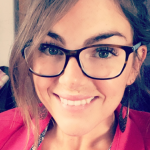 My work placement as an ODP student
My work placement as an ODP student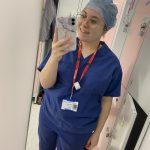 Story of an Operating Department Practice student
Story of an Operating Department Practice student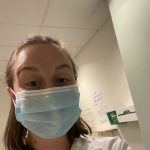 Becoming a Physiotherapist during a Pandemic
Becoming a Physiotherapist during a Pandemic

